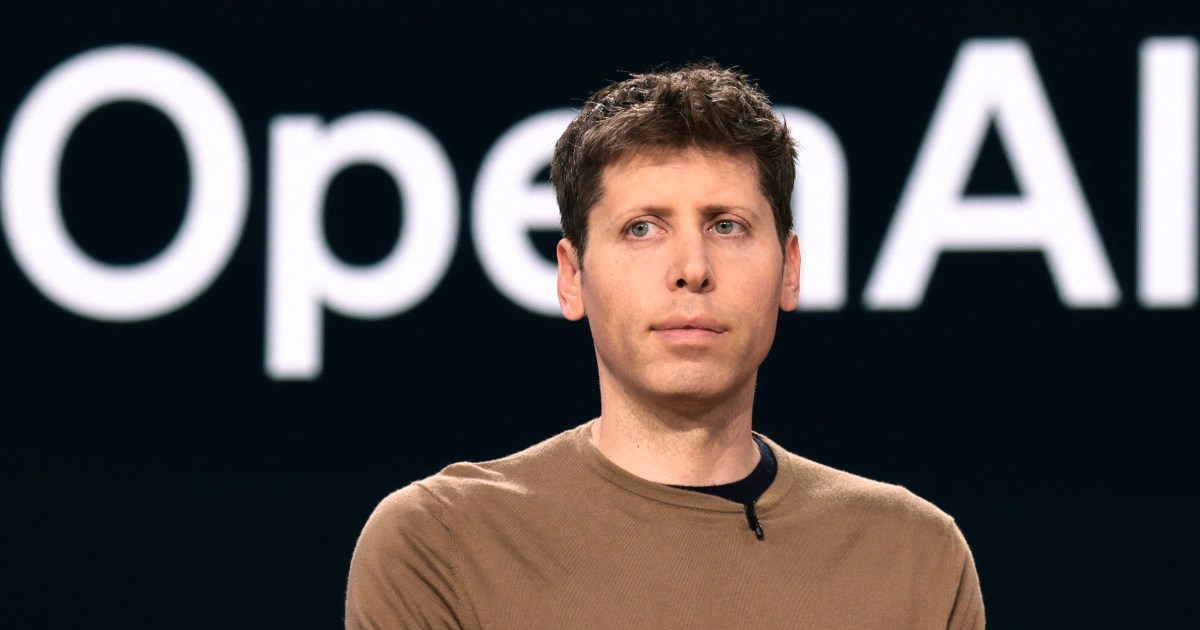Walmart and OpenAI Unveil AI-Powered Shopping with ChatGPT and Instant Checkout

Walmart's Breakthrough with OpenAI Partnership
Walmart’s stock surged after announcing a pioneering collaboration with OpenAI, enabling customers to shop directly through ChatGPT. This integration allows users to effortlessly purchase Walmart products by chatting with the AI, transforming traditional e-commerce into an AI-powered, conversational experience.
Revolutionizing the Shopping Experience
Instead of scrolling through endless product lists, shoppers can now simply ask ChatGPT to plan meals, restock essentials, or find new items. The "Instant Checkout" feature lets users confirm purchases within the chat, streamlining the buying process. Walmart CEO Doug McMillon emphasized that this marks a shift from reactive searches to proactive, personalized shopping, making the journey more intuitive and enjoyable.
Implications for Retail and AI
This partnership not only boosts Walmart’s digital innovation but also signals OpenAI’s expanding role in commerce. By embedding AI into everyday shopping, both companies aim to enhance convenience and redefine how consumers interact with retail, setting a new standard for the future of online purchasing.
About the People Mentioned
Doug McMillon
Doug McMillon is the President and CEO of Walmart Inc., the world’s largest retailer by revenue, a position he has held since 2014[2][3]. Born October 17, 1966, in Jonesboro, Arkansas, McMillon began his career with Walmart in 1984 as an hourly warehouse worker, unloading trucks and picking orders for $6.50 an hour[1][4]. He continued working for Walmart while pursuing his education, earning a bachelor’s degree in business administration from the University of Arkansas and an MBA from the University of Tulsa[2][4]. McMillon’s ascent within Walmart reflects a rare trajectory from entry-level roles to the top executive office. After his initial warehouse stint, he joined the corporate side in 1991 as a fishing-tackle buyer, later serving in a series of increasingly senior roles across Walmart’s business segments[1][2]. He led Sam’s Club as president and CEO from 2005 to 2009, then took over Walmart International from 2009 to 2014, before being named to the top post at Walmart Inc.[2]. His leadership is notable for its continuity—he has spent nearly his entire career at the company, giving him a deep understanding of Walmart’s operations, culture, and workforce[2][4]. Under McMillon’s leadership, Walmart has undergone significant transformation, particularly in response to the rise of e-commerce and changing consumer expectations. He has prioritized investments in technology, employee wages, and benefits, raising the minimum wage for U.S. workers and expanding parental leave and educational opportunities for associates[3][4]. McMillon has also championed sustainability initiatives, notably launching Project Gigaton, which aims to reduce or avoid a billion metric tons of greenhouse gas emissions in Walmart’s supply chain by 2030—a goal the company met years ahead of schedule[2][4]. McMillon is recognized for his focus on Walmart’s workforce, frequently visiting stores and emphasizing the importance of listening to frontline employees[5]. He has also taken public stances on societal issues relevant to the company, such as halting the sale of assault weapons in Walmart stores following mass shootings and advocating for LGBTQ+ rights[5]. Beyond Walmart, McMillon chairs the Business Roundtable and serves on several boards, including the Consumer Goods Forum and the U.S.-China Business Council[2][4]. His current relevance lies in his stewardship of Walmart during a period of intense retail competition and rapid digital transformation, as well as his advocacy for responsible corporate citizenship and workforce development[3][4]. As of 2025, he remains a central figure in global retail, guiding one of the world’s most influential companies through ongoing industry shifts.
About the Organizations Mentioned
OpenAI
OpenAI is a leading artificial intelligence research and deployment company founded in 2015 with the mission to ensure that artificial general intelligence (AGI)—AI systems generally smarter than humans—benefits all of humanity[1][2]. Initially established as a nonprofit, OpenAI’s goal has always been to advance safe and broadly beneficial AI technologies. In 2019, OpenAI created a for-profit subsidiary to scale its research and deployment efforts while keeping mission-aligned governance. As of October 2025, this structure evolved into the OpenAI Foundation (nonprofit) governing the OpenAI Group, a public benefit corporation (PBC). This unique corporate form legally binds OpenAI Group to prioritize its mission alongside commercial success, ensuring broader stakeholder interests are considered[1]. The Foundation holds equity in the Group, aligning incentives for long-term impact and growth. Microsoft owns approximately 27% of OpenAI Group, with employees and investors holding the rest[1]. OpenAI is renowned for pioneering breakthroughs in large language models and AI applications. Its products like ChatGPT revolutionized human-computer interaction by enabling natural language conversations and task automation. OpenAI continuously innovates by integrating AI into business tools—for example, its recent launch of “company knowledge” in ChatGPT Business harnesses AI to aggregate and analyze internal company data from apps like Slack, Google Drive, and GitHub, enhancing workplace productivity and decision-making[3]. Key achievements include advancing AI safety research, reducing hallucinations in language models, and expanding AI’s accessibility through products like Codex and ChatGPT Atlas (a browser with ChatGPT integration)[2]. OpenAI’s balanced governance model and cutting-edge research position it uniquely at the intersection of technology innovation and ethical AI development, making it a focal point in business and technology news globally.
Walmart
Walmart, founded in 1962 by Sam Walton, has grown from a single discount store in Arkansas to become the world’s largest retailer, with a commanding presence in both physical and digital retail landscapes[3]. As of fiscal year 2025, Walmart operates over 10,750 stores and serves approximately 270 million customers each week across 19 countries, employing about 2.1 million associates worldwide[1][2][4]. The company reported $681 billion in revenue for 2025, reflecting a 5.1% increase from the previous year and an 8.6% rise in operating income, underscoring its robust financial health and ongoing expansion[1][4][6]. ## What Walmart Does Walmart is a leader in hypermarkets and discount retail, offering a vast range of products—from groceries and apparel to electronics and home goods—through its extensive network of physical stores, e-commerce platforms, and mobile apps[2][3]. Its business is organized into three main segments: Walmart U.S., Walmart International, and Sam’s Club, a members-only warehouse club[3][5]. The company’s mission—“to help people save money and live better”—drives its focus on everyday low prices, convenience, and customer-centric innovation[2][5]. ## History and Key Achievements Walmart’s journey from a single store to a global powerhouse is marked by relentless expansion, operational efficiency, and technological adoption[3]. Key milestones include the launch of Walmart Supercenters in the 1980s, international expansion beginning in the 1990s, and the rapid growth of its e-commerce business in the 2010s and beyond[3]. Today, online sales account for 18% of Walmart’s revenue, fueled by four consecutive quarters of 20% growth[1]. The company’s retail media network, Walmart Connect, has also surged, with ad revenue up 50% in a recent quarter

















